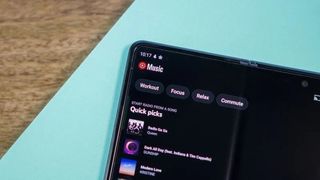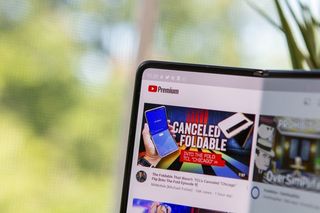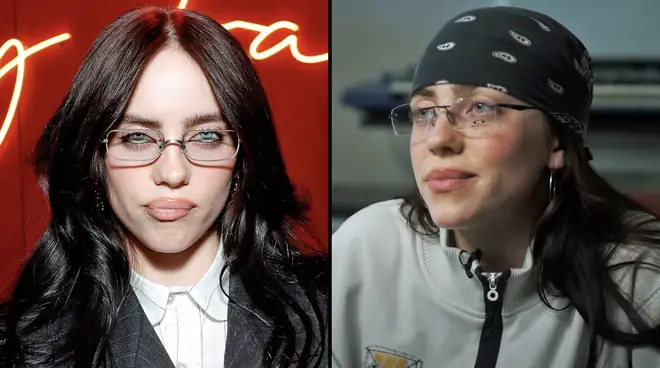Google wants to use music to train AI models, but record labels should object
What do you want to know YouTube has confirmed it is in talks with record labels to pay for access to music for “other experiences” using AI. Google launched a few applications for AI in music production at Google I/O in May 2024, including during a keynote pre-show. Labels and artists may accept permissive AI […]

What do you want to know
- YouTube has confirmed it is in talks with record labels to pay for access to music for “other experiences” using AI.
- Google launched a few applications for AI in music production at Google I/O in May 2024, including during a keynote pre-show.
- Labels and artists may accept permissive AI training offers because of the complexity of compensation in the streaming era, where artists earn less than a cent per stream.
AI is quickly making its way into every creative industry, as generative AI is capable of creating text, photos, videos, and even music. Google, a major player in the AI race, is looking for ways to train its models to perform various tasks, including generating music. For this to work, Google needs source material to train the AI models on, and YouTube is looking to partner with record labels to get it.
YouTube already has a Dream Track feature based on the work of nine artists. However, Financial Times YouTube is reportedly in talks with record labels Universal Music Group (UMG), Sony Music Entertainment and Warner Records. A potential deal would involve YouTube paying “cash lump sums” for the right to use the labels’ songs for AI music training. In a statement, YouTube told the Financial Times that it was “in talks with labels about other experiments” but had no plans to develop Dream Track specifically.
It is unclear whether copyrighted material can be used to train AI models, at least from a legal perspective. We will have an answer to this dilemma one day or another, because The New York Times sues OpenAI last year for violating its copyright by using Times articles to train AI models.
For now, companies training their AI models face a high-risk, high-reward scenario. Using copyrighted material to train AI models could dramatically accelerate their growth, but it could also expose companies to lawsuits if courts rule in favor of copyright holders like the New York Times.
The safe bet is to try to make deals directly with copyright holders to pay them for training AI models based on their content. In many cases, this is exactly what Google does. By entering into an agreement with the record labels themselves, YouTube could use certain songs, albums or catalogs (as specified in the agreement) to train AI models and provide certain functionality without legal consequences.
This is important because the legal ramifications could be huge. In a lawsuit, the Recording Industry Association of America (RIAA) sued Suno and Udio, two AI music generation tools, for copyright infringement and sought $150,000 in damages per violation, as reported by Rolling stoneThe RIAA is a force in the music industry, representing the biggest record labels, including those YouTube wants to do a deal with, like UMG.
The specifics of which YouTube features will require AI music training are unclear. However, AI-powered generative music creation makes sense for the platform. YouTube has strict copyright restrictions that limit the type of music that can be used in videos. YouTube videos containing unauthorized use of copyrighted content could be removed entirely, suffer a loss of monetization, or result in a copyright strike on the published channel.
There are definitely ways to use music in YouTube videos. The easiest way is to find royalty-free music that you can use freely in other works, usually as long as credit is given to the original creator. However, it is quite difficult to safely use music that you did not create yourself on YouTube.
AI music generation features could solve this problem, providing a way to create original background music for YouTube videos without the risk of copyright implications. As such, it’s easy to see why YouTube would want to work with the major labels.
It’s the record companies that should pull out

It’s pretty obvious that YouTube wants to pay record labels to license their content for AI training purposes. However, record labels should decline the offer. We don’t know how much YouTube is offering, but it doesn’t really matter. YouTube could give an artist or record label a blank check, and they’d still have to leave it on the table.
It’s impossible to put a price on creativity these days. Music creation tools can do some tricks and are a great way for people who aren’t musically gifted to get started with songwriting. However, today’s tools are nothing like professional musicians. Most of the ones available today are based on the image of popular singers or create something that pales in comparison to what a human could do.
It is possible, and perhaps even plausible, that generative AI will become so effective in music creation that it replaces artists. I doubt it, but I would never bet against technology. Regardless of generative AI becoming better at music creation, record labels and artists certainly shouldn’t contribute to it.
A quick influx of cash could help in the short term, especially as the music industry struggles to adapt to streaming finances. However, the situation will not improve in the long term. Once the door is opened to AI music training, it can never be closed again. It may be difficult to earn less than a penny from music streams today, but it will be even harder to watch AI-created music by models trained on human tracks without receiving royalties in return.
There are precedents for record labels working with Google to deliver generative AI features. After all, that’s what made Dream Track possible. But if I were running a record label, I’d follow in the RIAA’s footsteps in a heartbeat. Record labels shouldn’t give up music in their portfolio to use for AI training without first putting up a hard fight.














